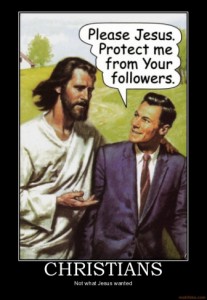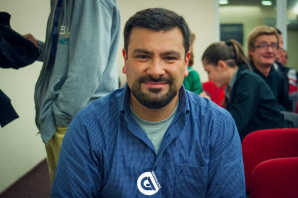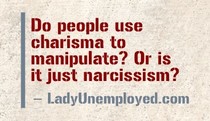 Information that has come in recently means that my speculations of yesterday are already out of date. Please read to the end, including the two Stop Press additions. For the time being what is true is that the Commission appointed by Trinity is dead, but John Langlois and three of his commissioners seem determined to carry on and finish the task. Good luck to them in their determination. There are still areas of truth to be revealed but one has learnt to be suspicious of anything coming out of Trinity about what is ‘true’. I will endeavour to keep my readers up to date with information as it becomes available.
Information that has come in recently means that my speculations of yesterday are already out of date. Please read to the end, including the two Stop Press additions. For the time being what is true is that the Commission appointed by Trinity is dead, but John Langlois and three of his commissioners seem determined to carry on and finish the task. Good luck to them in their determination. There are still areas of truth to be revealed but one has learnt to be suspicious of anything coming out of Trinity about what is ‘true’. I will endeavour to keep my readers up to date with information as it becomes available.
News has come in today (Sunday) from Nigel Davies’ blog that the Commission of Enquiry at Holy Trinity Brentwood has been dissolved. This mean that there will be no report, no action or recommendations about the steps the church should take concerning the allegations of abuse from the past. Obviously there will be further information in the coming days and weeks to offer an explanation as to why this action has been taken, but at this point we can offer some speculation as to what might be going on.
At the beginning of the enquiry the under the terms of the Commission, it was stated that the group of five people would not investigate matters of criminality. The Commission would only hear material from individuals who had been hurt by the church. Given the fact that the incident that provoked the setting up of the Commission was an allegation of rape, a highly criminal act, it was a curious condition with which to restrict the Commission’s work. My speculation is that the Commission has been hearing so many allegations of criminal activity that they realise that it will be impossible to write a report without at least referring to these allegations. Some of the stories of abuse are connected with children and it is hard to see that, in the case of an abused child, it is possible to talk about the non-criminal part of the abuse and ignore the criminal bit. Then there are the financial issues. It is hard to believe that the Commission is not aware of all the property swaps and financial shenanigans that have taken place over the years which have involved huge sums of money, not to mention outright lying and fraud. How on earth do you write a report that ignores criminal allegations?
Having said this I am still deeply disappointed in this outcome, whatever the reason. John Langlois, as an experienced lawyer, must have known that separating criminal from non-criminal activity might be an impossible task in practice. He only had to read Nigel’s blog to get the flavour of the kind of things that have gone on over the years to realise that some soft-centred reconciliation act was probably never going to work. Too much of blatant evil has happened for some easy-going act of mediation to be able to sort the problems out. On Nigel’s blog tonight, there is the suggestion that the Church itself has pulled the plug on the Commission as it does not like the way the evidence is going, in pointing at wrongdoing by the church.
The end of the Commission is a tragedy for the church and its victims. It is a tragedy for the church because the possibility of moving forward healthily, with its dark past somehow dealt with, has been removed. A process of reconciliation with victims and the wider church is also no longer possible. The Evangelical Alliance, which encouraged the setting up of this Commission as maybe a way of resolving a running sore to its reputation, will still have this ‘Peniel Problem’ to deal with. They had much to gain if the Commission had found a way forward on this particular issue. It would be interesting to know what has been going on behind the scenes. The EA stand to lose out from this particular outcome. Acting as a body which offers some loose accreditation to churches, the EA is always going to find that associating with notorious set-ups like Brentwood will undermine their reputation and any good work they try to achieve. I, for one, have absolutely no confidence in their ability to discriminate between good and bad, the holy and the infamous among their constituent members.
The biggest area of betrayal is of the victims who have been cajoled to come out of their places of pain to give evidence to the Commission. They were encouraged to believe that they were finally being heard. They believed that justice in some measure was being offered to them. Whether or not it was to involve financial compensation is neither here nor there. They just wanted to be believed. My hearts weeps for the state of those who have had for years to nurse the pain of the abuse they suffered at Peniel from the monstrous leaders of that church, only to have their hope dashed by this dissolution of this Commission. Even those who had not opted to give evidence were watching from the side-lines in the hope that their cause was being represented by others. Now their hope too is extinguished.
The last hope is that justice will prevail in another way. Kathryn Bowden, the incredibly brave Bible School student who stood up and made her allegation of rape while under the ‘care’ of the church will indeed be angry. I hope she will pursue justice for herself and all the other victims of the church. If she does do something via the law or the police, she will be representing all those individuals who have had their voices squashed by this incredibly sad decision. She will have all the support that we can muster. The task that the Commission set out to accomplish still really matters to many people. The pain of the historic abuse at this particular church must be heard somehow and made a matter of public acknowledgement.
Anger and the tears of dashed hopes will be the feelings experienced by many individuals in Essex today. Let us hope that something can be rescued from this shambles of the dissolving of the Commission. Whatever it will be, we want it to be something will promote the cause of truth and justice for the abused victims of a Christian Church. What happens at Trinity, Brentwood is important for the victims of Christian abuse everywhere.
STOP PRESS
The situation has shifted dramatically in the past few hours as it has been revealed that John Langlois has been sacked by the Trustees. It appears that one of the Trustees, Terry Mortimer, accused him to the Trustees of partiality. Terry did not discuss this with the other commissioners. John has published a robust account of the correspondence that he had with the Trustees and it seems that Terry Mortimer is himself accused of leaking information outside the Commission. The situation is confused and no doubt will develop over the next day or so. My impression of John Langlois himself has shifted back to being an extremely positive one. I have therefore removed my expression of doubt in his impartiality that was in my earlier version. Perhaps I was picking up deliberate misinformation from those who had their own reasons to undermine this report.
STOP STOP PRESS
A closer perusal of the email sent by John Langlois to the individuals who have met the Commission indicates that he is far from accepting that the Commission is dead. His ‘sacking’ by the Trustees of the church and the dissolution of the Commission is actually seen as allowing him more freedom in his work. He was appointed on the recommendation of the Evangelical Alliance and it is hard to see that they will back up Trinity in summarily dismissing him from his work. His tone in the email is such that one can see a steely determination to carry on, whatever anyone says, including the EA. He has enormous prestige in the evangelical world, and it is hard to see anyone ‘messing’ with him. Questions are still lurking about his own agenda, but my confidence in his integrity is such that I am, for the moment, treating these questions as deliberate disinformation put out by Trinity, seeking to undermine his case. This saga is set to run and run and the successful outcome will be nothing but good for the cause of victims of abuse at the hands of churches everywhere. The Commission set up by Trinity is dead. Long live the the Commission mark 2!









